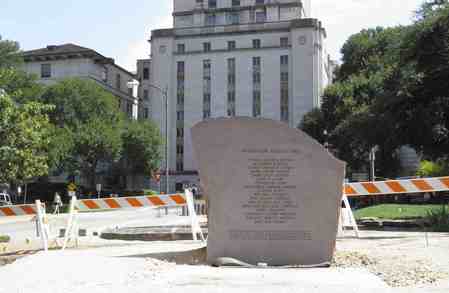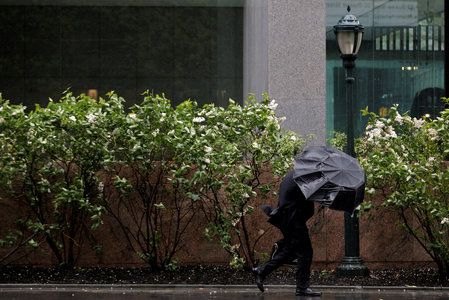Advertisement
Guns and memory of mass shooting collide at Texas campus

By Jon Herskovitz
AUSTIN, Texas (Reuters) – Half a century ago, a sniper perched on a University of Texas tower unleashed a killing spree that left 16 dead, and for the first time since then the school will hold an official memorial for an event that shocked the nation.
But overshadowing the anniversary of the Aug. 1, 1966 tower shooting is the start of a new law backed by Republican lawmakers to allow more guns in more places at public universities.
The lawmakers say the “campus carry” law, which goes into effect August 1, could prevent another mass shooting, while many survivors of the university tower shooting half a century ago see it as a chillingly wrong-headed approach that could spark more killing.
The campus carry law allows those over 21 with a concealed handgun permit to take guns into classrooms and several parts of the campus.
“Guns do not have a place on campus. A university is a battleground of words and ideas, and not of weapons,” said John “Artly” Fox. In 1966, he was a 17-year-old student who crossed one of the killing fields on campus to help carry a pregnant woman shot by sniper Charles Whitman to safety.
“The university could be criticized. Obviously, 50 years is too long. But back then, no one knew how to handle situations like this,” he said in an interview in late July.
The Texas shooting in which Whitman, a 25-year-old former Marine who brought a cache of weapons to the tower’s observation deck about 250 feet (76 meters) in the air, was considered one of the seminal events of the era and the first U.S. mass shooting of live, national TV news.
Whitman was killed by police after he unleashed 90 minutes of terror by shooting more than 40 people from one of the highest spots in the Texas capital.
Unlike the mass shootings in recent months and years that are followed by vigils, remembrances and counseling, the remnants from the carnage were quickly cleaned up and students soon returned to their business.
Fox went home after his act of heroism and did not meet the woman he helped pulled to safety, Claire Wilson James, until a few years ago as part of documentary that was being put together on the shooting.
James, then eight months pregnant, survived the attack but lost her baby. Last year, she lobbied unsuccessfully to have Texas lawmakers halt campus carry.
On Monday, the university will unveil a stone monument selected by a committee of the victims that bears the names of those killed when it holds its first official ceremony. It will turn off the tower clock for 24 hours, starting from 11:48 a.m., when the first shots rang out from the perch 50 years ago.
The school did not know how to respond in the aftermath of the shooting, with many thinking the best response was to get over it, not talk about it and just carry on.
Survivors found each other in an informal 2014 remembrance and through the making of a documentary called “Tower” on the shooting that came out this year, with many saying in the movie they still feel emotional scars from that day. They formed a group and pressed the school to mark the event ranked by news services AP and UPI as the number 2 news event in 1966 behind the Vietnam War.
Gregory Fenves, who became president last year after joining the university’s administration in 2008, said the school has tried to keep the anniversary ceremony separate from the start of campus carry. He has spoken to shooting survivors about the memorial.
“A lot has changed as a society and for institutions since then. We understand the healing process, and closure,” he said in an interview.
“One of the lessons is that we do need to deal with the trauma and we need to support the survivors and recognize those who were killed,” he said.
Texas follows eight other states that allow people to carry concealed weapons on public post-secondary campuses, according to the National Conference of State Legislatures.
Diana Mendoza, who graduated from the university in 2015 and now works at the school, visited the stone memorial on Thursday ahead of its dedication and said it was about time to have an official ceremony.
She is also staunchly opposed to the new campus carry law, which she said is more likely to bring violence back to the school than prevent it.
“Ah Texans and their guns. I am Texan born and raised and campus carry is ridiculous,” Mendoza said. “This could easily happen again.”
(Reporting by Jon Herskovitz; editing by Diane Craft)











